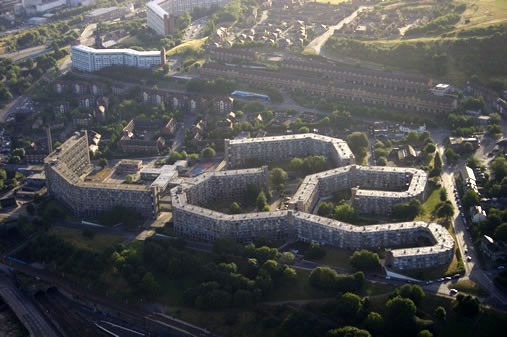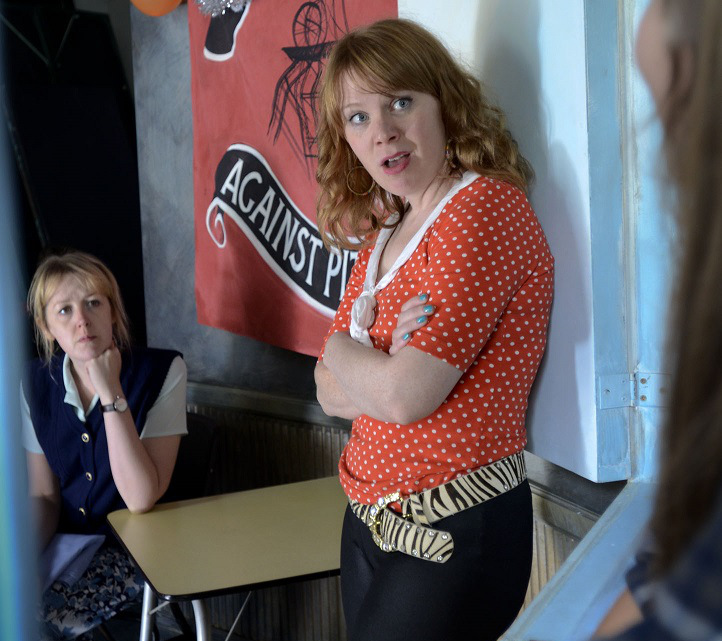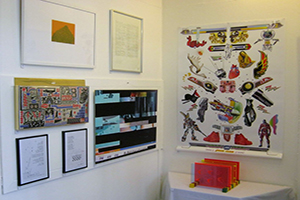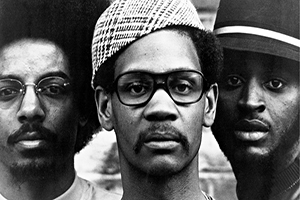18 February / Sheffield Traders & Labour Club
Standing on Sky Edge under a heavy twilight is a bit like perching on a giant tongue, gazing out at an array of broken teeth, each one bearing the marks of Sheffield’s history of bold ambitions and brutal let-downs.

From one vantage point I can see the full, geometric madness of Park Hill flats, the chimneys of Stocksbridge steelworks, at least one football ground, churches and monuments to Victorian industrialists, and the more recent stampede of two universities, with a few shiny fillings where new buildings are going up. Move round to the east a bit, and I can see the whole of the Don Valley, from the steel-age monoliths to the cluttered uncertainties of modern trading estates. Further east still, five miles away, are two wind turbines, poking up from the Advanced Manufacturing Park, where the Orgreave Coking Plant used to be. And just below me, at the bottom of a short, muddy, thorny scramble down onto Duke Street, is the Sheffield Trades & Labour Club, my destination for this evening.
My only real memory of the Miners’ Strike is the TV footage of Orgreave, a battleground scene of cavalry, missiles and donkey jackets. Somehow, in my mind, Margaret Thatcher reverses a talking Austin Maestro into the foreground, and it becomes a muddle. Boff Whalley, formerly of Chumbawumba, may remember more than me, at least enough to write a convincing musical play about it.
We’re Not Going Back is the personal story of three unmatched sisters, holding themselves and their frustrated, listless men together during those hard months of 1984-5. It’s also the story of Women Against Pit Closures, who formed out of a need to do more than ‘watch the sacred fire while the tribal elders have a pow-wow’. The female perspective is a great plot device, because it allows the play to intertwine sisterly gossip and hang-ups with the age-old notion that whilst women love and respect their men, they also know full well that man is a rudderless ghost ship without woman.

The script is laced with quick Yorkshire humour, simultaneously gentle and cutting, warm and bitter, just as it should be. The cast of four bring genuine empathy to a difficult setting, and they’re also talented musicians, their lovely harmonies bringing a lightness of touch to even the darkest corners of the story. There are belly laughs too, nowhere more so than in response to the cry, “Comrade Blunkett will never sell out the Red City!”
When the strike suddenly ends with crushing defeat for the miners, the sisters bravely find a way to accentuate the positive. At this point I feel the charged atmosphere in the room, full of the ghosts of 30 years ago – some bruises worn lightly, with humour, but some dark scars that still sting enough to bring a stifled tear behind the eye. The beating heart of socialism is still here, in this room, and it’s emotional for the performers too. For the Red Ladder Theatre Company, in the face of their own funding cuts, that’s the kind of audience connection that makes it all worthwhile.
And for those of us too young or distant to feel we can ever really understand it, a minor-key folk-spiritual that held everyone in its grasp deserves the last say: “Our old men cough up blood, our young men face the dole – do you wonder, like I wonder, what price coal?”
www.otjc.org.uk
www.saveredladder.co.uk
Words: Andrew Wood.



